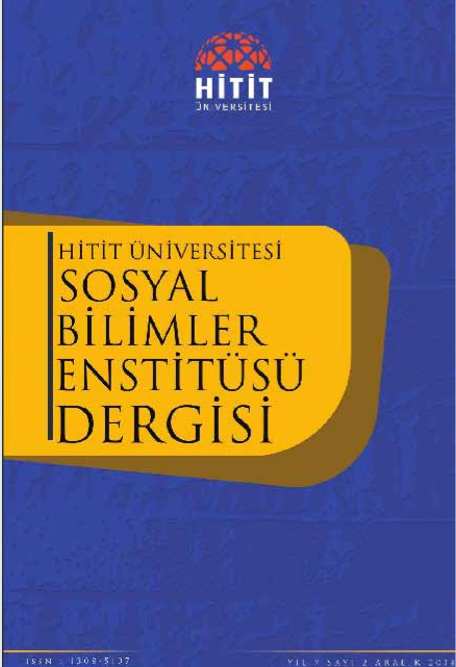Tepecik-Çiftlik Neolitik İnsanlarında Genel ve Cinsiyet Yönelimli Çocuk Sağlığı
General and Sex-Biased Child Health Among Tepecik-Çiftlik Neolithic People
Author(s): Ali Metin BüyükkarakayaSubject(s): Archaeology, Gender Studies, Cultural Anthropology / Ethnology, Evaluation research, Health and medicine and law
Published by: Hitit Üniversitesi Sosyal Bilimler Enstitüsü
Keywords: Anatolia; Bioarchaeology; Parental investment; Gender; Enamel hypoplasia;
Summary/Abstract: In this study, human skeletal remains recovered from the Tepecik-Çiftlik archaeological settlement located in Central Anatolia were examined regarding general child health and the effect with regard to sex. The material examined in this study was dated 7th millennium cal BC (Neolithic Period) and consisted of 696 permanent teeth. Linear enamel hypoplasias (LEHs) were used as a proxy for malnutrition and poor health conditions in the childhood period. The frequency of LEH was detected in 32.0% of the teeth belonging to Tepecik-Çiftlik Neolithic people. This indicates that individuals who lived at the site were faced with physiological stresses marked in their childhood period. Additionally, it was determined that the frequency of LEH had varied significantly in sex subgroups of the population.
Journal: Hitit Üniversitesi Sosyal Bilimler Enstitüsü Dergisi
- Issue Year: 7/2014
- Issue No: 2
- Page Range: 379-402
- Page Count: 24
- Language: Turkish

